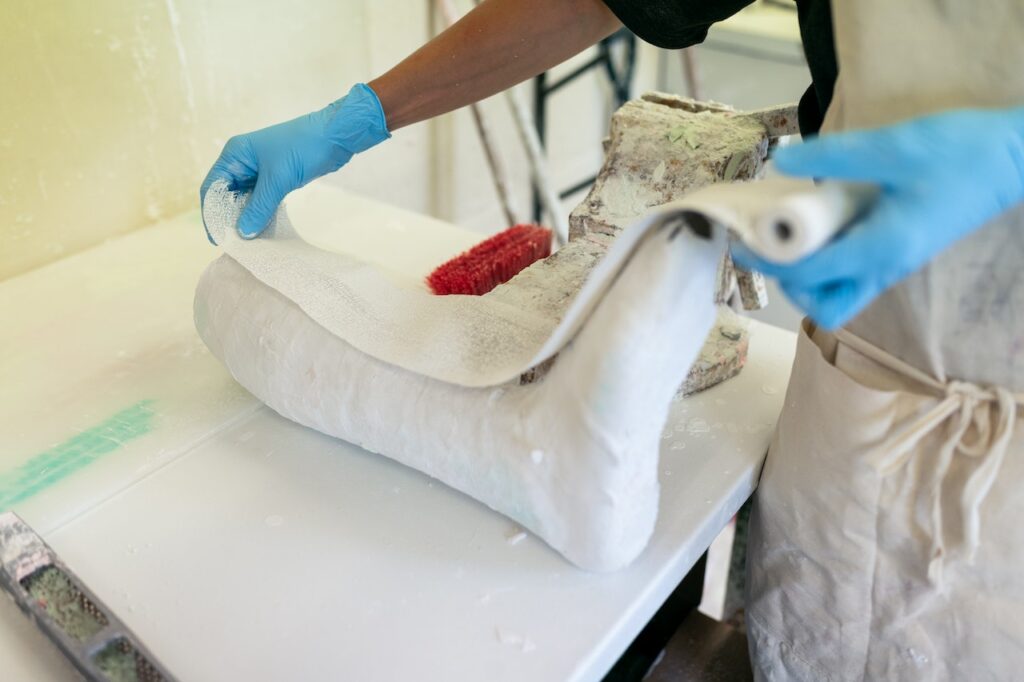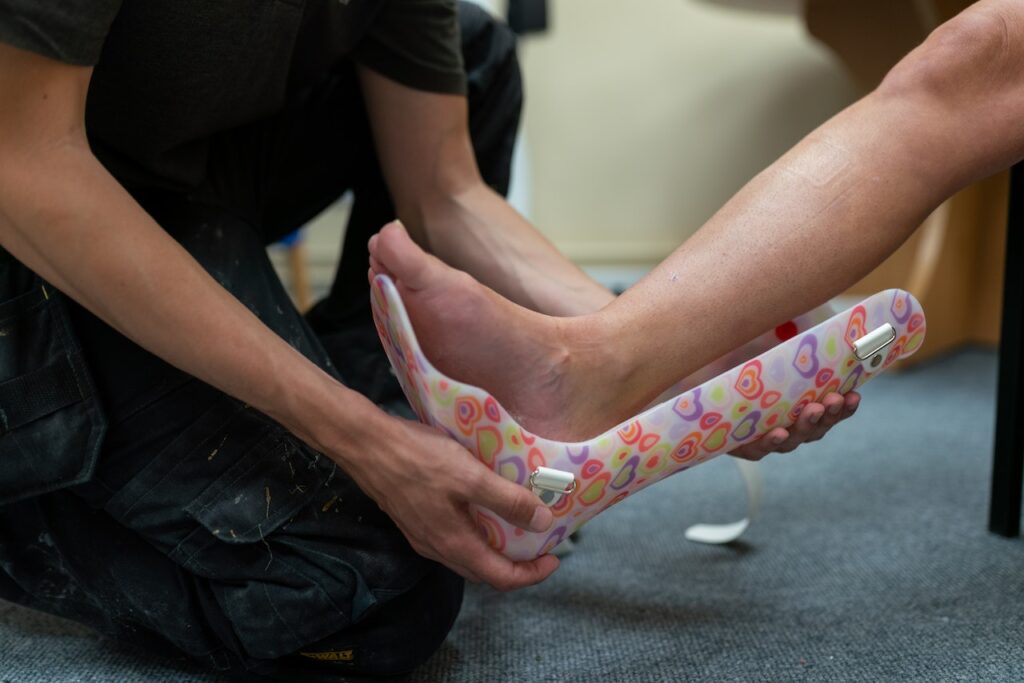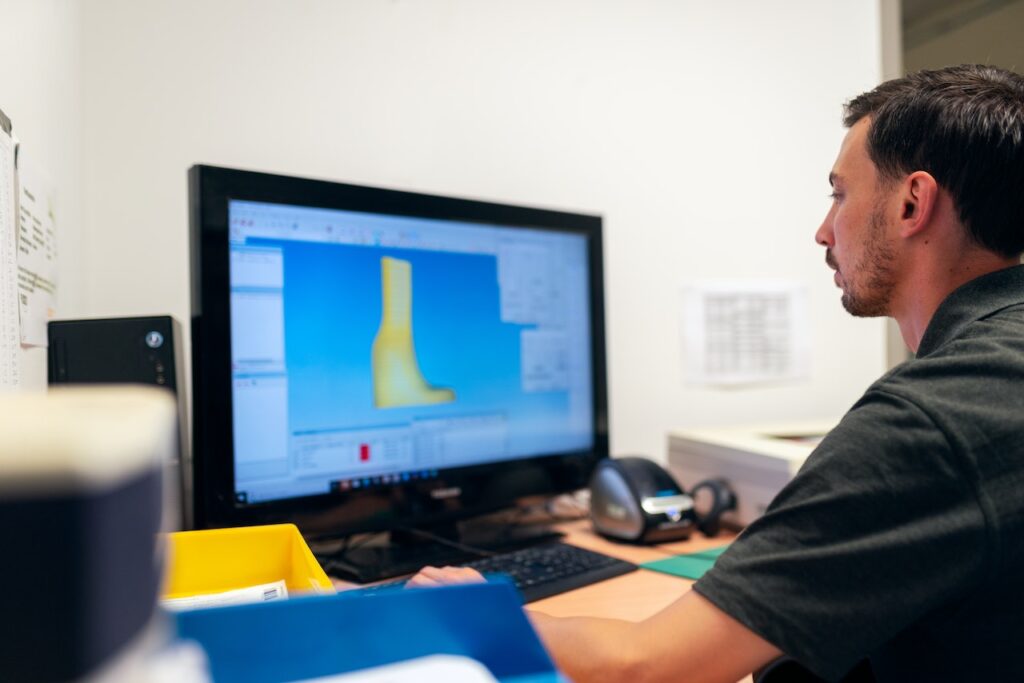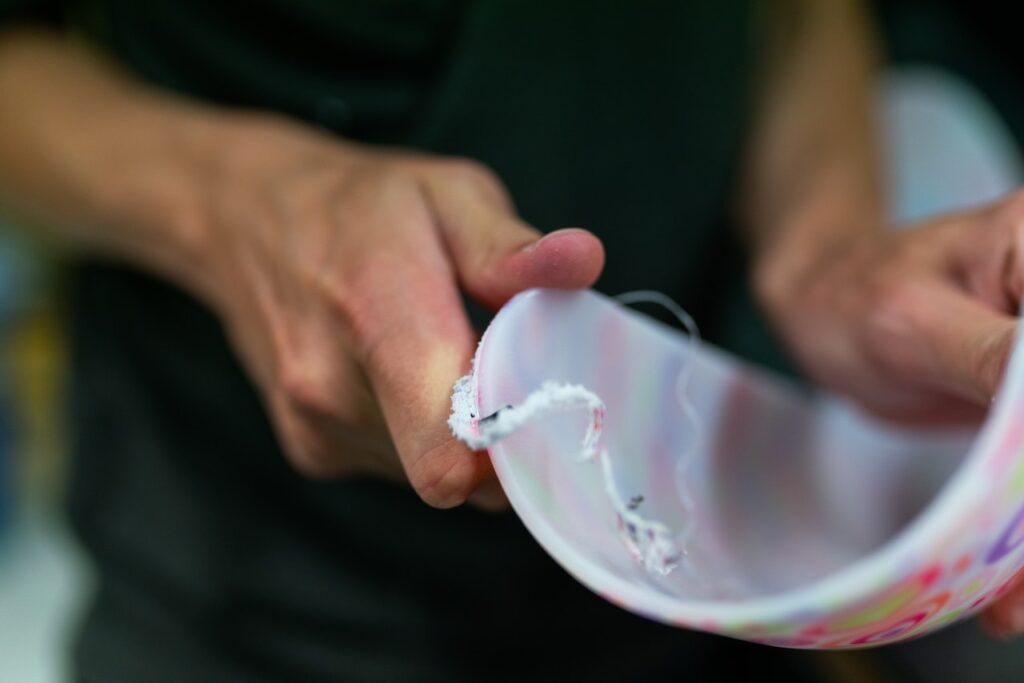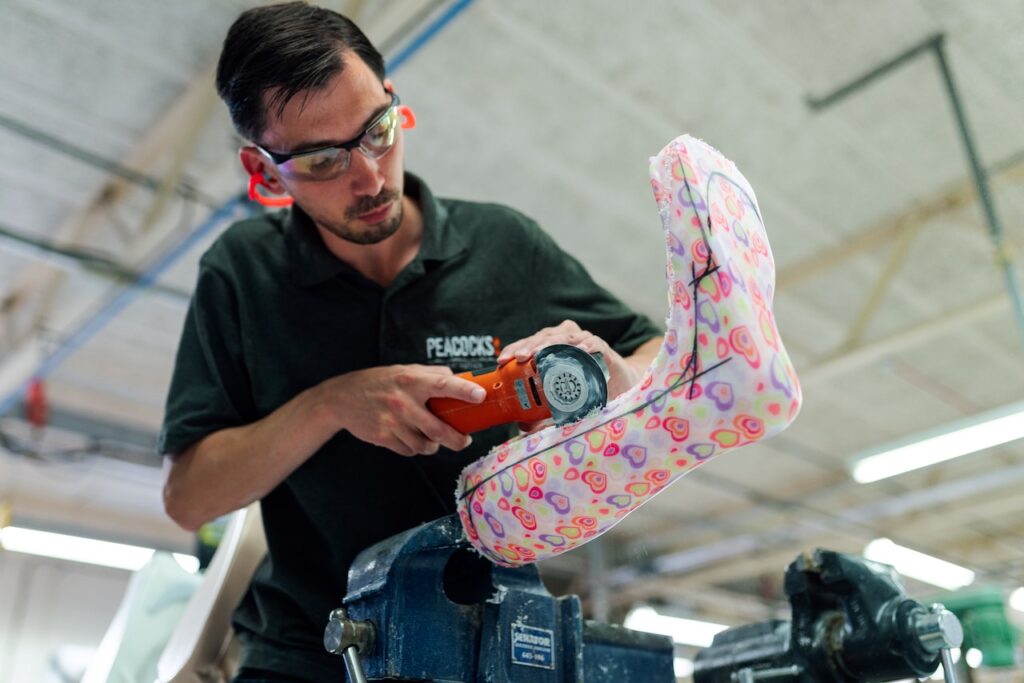Orthotics are a common solution for individuals who suffer from foot, ankle, or knee pain. These shoe inserts are designed to alleviate discomfort and improve overall foot function. However, many people wonder how long orthotics last before they need to be replaced.
The lifespan of orthotics can vary depending on several factors. Custom orthotics, which are specifically made for an individual’s foot, tend to last longer than over-the-counter options. Additionally, the frequency of use and the level of activity can impact the lifespan of orthotics. In general, orthotics can last anywhere from six months to several years. If you’re interested in learning more about orthotics and how long do orthotics really last, keep reading to learn more.
Understanding Orthotics
What Are Orthotics
Orthotics are devices that are worn inside shoes to provide support and alleviate foot pain and discomfort. They can be custom-made or over-the-counter and are designed to address a range of foot problems, including flat feet, high arches, bunions, and plantar fasciitis.
Types of Orthotics
There are several types of orthotics, each with its own unique features and benefits. The most common types of orthotics include:
- Rigid orthotics: These are made from firm materials such as plastic or carbon fiber and are designed to control motion in the foot and ankle.
- Soft orthotics: These are made from softer materials such as foam or gel and are designed to provide cushioning and support.
- Functional orthotics: These are designed to correct abnormal foot mechanics and are often used to treat conditions such as overpronation.
- Prescription orthotics: These are custom-made to fit the specific needs of an individual and are typically prescribed by a podiatrist.
Orthotics can be used in a variety of footwear, including dress shoes, athletic shoes, and work boots. They can also be used in conjunction with other treatments such as physical therapy and medication to provide comprehensive relief for foot and heel pain.
Overall, orthotics can be a valuable tool in the treatment of foot and ankle problems. By providing support and correcting abnormal foot mechanics, they can help alleviate pain and improve posture and biomechanics.
Lifespan of Orthotics
Orthotics are shoe inserts that are designed to provide support, stability, and comfort to the feet. They are commonly used to treat various foot conditions such as plantar fasciitis, flat feet, and high arches. One of the most common questions people have about orthotics is how long they last.
Factors Affecting Lifespan
The lifespan of orthotics can vary depending on several factors. Some of the most important factors that affect the lifespan of orthotics include:
- Usage: The more frequently you use your orthotics, the faster they will wear out. People who wear their orthotics every day will need to replace them more often than those who only wear them occasionally.
- Activity level: People who engage in high-impact activities such as running or jumping may need to replace their orthotics more frequently than those who engage in low-impact activities such as walking.
- Quality of materials: The quality of the materials used to make the orthotics can also affect their lifespan. Orthotics made from high-quality materials will generally last longer than those made from lower-quality materials.
- Fit: Orthotics that are not properly fitted can wear out faster than those that fit correctly. It is important to have your orthotics fitted by a professional to ensure that they provide the proper support and last as long as possible.
Signs of Wear and Tear
It is important to pay attention to the signs of wear and tear on your orthotics so that you can determine when it is time to replace them. Some of the most common signs of wear and tear on orthotics include:
- Cracks or tears in the material
- Loss of support or cushioning
- Discoloration or odor
- Changes in the shape or size of the orthotic
If you notice any of these signs, it is time to replace your orthotics. Continuing to use worn-out orthotics can lead to further foot problems and discomfort.
Replacement and New Custom Orthotics
Orthotics typically last between 6 months to 2 years, depending on the factors mentioned above. However, it is important to note that this is a general guideline and individual results may vary. When it is time to replace your orthotics, you can either purchase a new pair of custom orthotics or have your existing orthotics refurbished.
Custom orthotics are designed specifically for your feet and provide the best support and comfort. Refurbishing your existing orthotics involves replacing the top cover and any worn-out components to extend their lifespan. Ultimately, the decision to purchase new custom orthotics or refurbish your existing orthotics will depend on your individual needs and budget.
Maintenance and Care for Orthotics
Proper Usage
To ensure the longevity of orthotics, it is important to use them properly. Orthotics are designed to provide support and correct foot abnormalities, but they are not indestructible. It is recommended to only wear orthotics with shoes that fit properly and provide ample support. Wearing orthotics with shoes that are too tight or too loose can cause them to wear down faster. It is also important to gradually increase the amount of time spent wearing orthotics to allow the feet to adjust.
Cleaning
Regular cleaning of orthotics is essential to prevent the buildup of bacteria and unpleasant odors. Orthotics should be cleaned with a mild soap and water solution and then dried thoroughly. It is important to avoid using harsh chemicals or solvents, as they can damage the materials. If orthotics become excessively dirty or stained, they can be taken to a professional for cleaning.
Storage
Proper storage of orthotics is also important for their longevity. When not in use, orthotics should be stored in a cool, dry place away from direct sunlight. It is recommended to store them in their original packaging or in a protective case to prevent damage. Orthotics should never be stored near heat sources or in damp environments, as this can cause them to warp or deteriorate.
Lifestyle Change
Orthotics are designed to help correct foot abnormalities and provide support, but they are not a substitute for a healthy lifestyle. Maintaining a healthy weight, engaging in regular exercise, and wearing supportive shoes can help prolong the life of orthotics.
Repair
In the event that orthotics become damaged or worn down, it is important to have them repaired by a professional. Attempting to repair orthotics at home can cause further damage and compromise their effectiveness. Regular inspections of orthotics can help identify any potential issues before they become major problems.
When to Seek Medical Advice
New or Worsening Symptoms
If someone begins to experience new or worsening symptoms while using orthotics, it is important to seek medical advice. These symptoms may include foot pain, discomfort, or any other unusual sensations. In some cases, these symptoms may indicate that the orthotics are not providing adequate support or that they are causing damage to the feet.
Consulting a Podiatrist
If someone is experiencing any of the symptoms mentioned above or if they have any concerns about their orthotics, they should consult with a podiatrist. A podiatrist can evaluate the fit and function of the orthotics and make any necessary adjustments. They can also provide advice on proper foot care and recommend exercises to strengthen foot muscles.
Individuals with diabetes or foot ulcers should be especially careful when using orthotics. Any new pain or discomfort should be reported to a podiatrist immediately. Injuries, calluses, and corns can also be a sign that the orthotics are not fitting properly.
In summary, if someone experiences any new pain or discomfort while using orthotics, they should consult with a podiatrist. A podiatrist can evaluate the fit and function of the orthotics and make any necessary adjustments. It is important to seek medical advice if any new or worsening symptoms occur to prevent further damage to the feet.
Insurance and Orthotics
When it comes to orthotics, many people wonder whether their insurance will cover the cost. The answer to this question depends on several factors, including the type of insurance you have, the reason for needing orthotics, and the specific policy you hold.
In general, most insurance plans will cover orthotics if they are deemed medically necessary. This means that if your doctor prescribes orthotics to treat a specific condition or injury, your insurance will likely cover the cost. However, if you are simply looking for orthotics to improve your comfort or performance, your insurance may not cover the expense.
It is important to note that even if your insurance does cover orthotics, you may still be responsible for some out-of-pocket costs. This could include deductibles, copays, or coinsurance. Additionally, some insurance plans may have specific requirements for orthotics, such as pre-authorization or using a specific provider.
To determine whether your insurance will cover orthotics, it is best to contact your provider directly. They can provide you with information about your specific policy and any requirements or limitations that may apply. It is also a good idea to talk to your doctor about your options and any potential costs associated with orthotics.
Overall, while insurance coverage for orthotics can vary, it is possible to get the treatment you need without breaking the bank. By understanding your insurance policy and working with your doctor, you can find a solution that works for you.
Frequently Asked Questions
How long can I expect my orthotics to last?
The lifespan of orthotics can vary depending on several factors, such as the frequency of use, the type of activities they are used for, and the quality of the materials used to make them. However, on average, orthotics can last anywhere from 1 to 5 years.
What are the signs that my orthotics need to be replaced?
If you notice any of the following signs, it may be time to replace your orthotics: visible wear and tear, loss of support, discomfort or pain, or a change in the fit or shape of the orthotics.
What is the average cost of orthotics?
The cost of orthotics can vary depending on several factors, such as the type of orthotics, the materials used, and whether they are custom-made or off-the-shelf. On average, custom-made orthotics can cost anywhere from $300 to $600, while off-the-shelf orthotics can cost anywhere from $30 to $80.
Are there any side effects of wearing orthotics?
While orthotics are generally safe to use, some people may experience mild discomfort or pain when first using them. This is normal and should subside within a few days. However, if the pain persists or worsens, it is recommended to consult with a healthcare professional.
How long does it take to make custom orthotics?
The process of making custom orthotics can take anywhere from 2 to 4 weeks. This includes the initial consultation, the casting or scanning of the feet, and the actual fabrication of the orthotics.
How long does it take for orthotics to start working?
The time it takes for orthotics to start working can vary depending on the individual and the condition being treated. However, in general, it can take anywhere from a few days to a few weeks for the user to notice the benefits of wearing orthotics.


